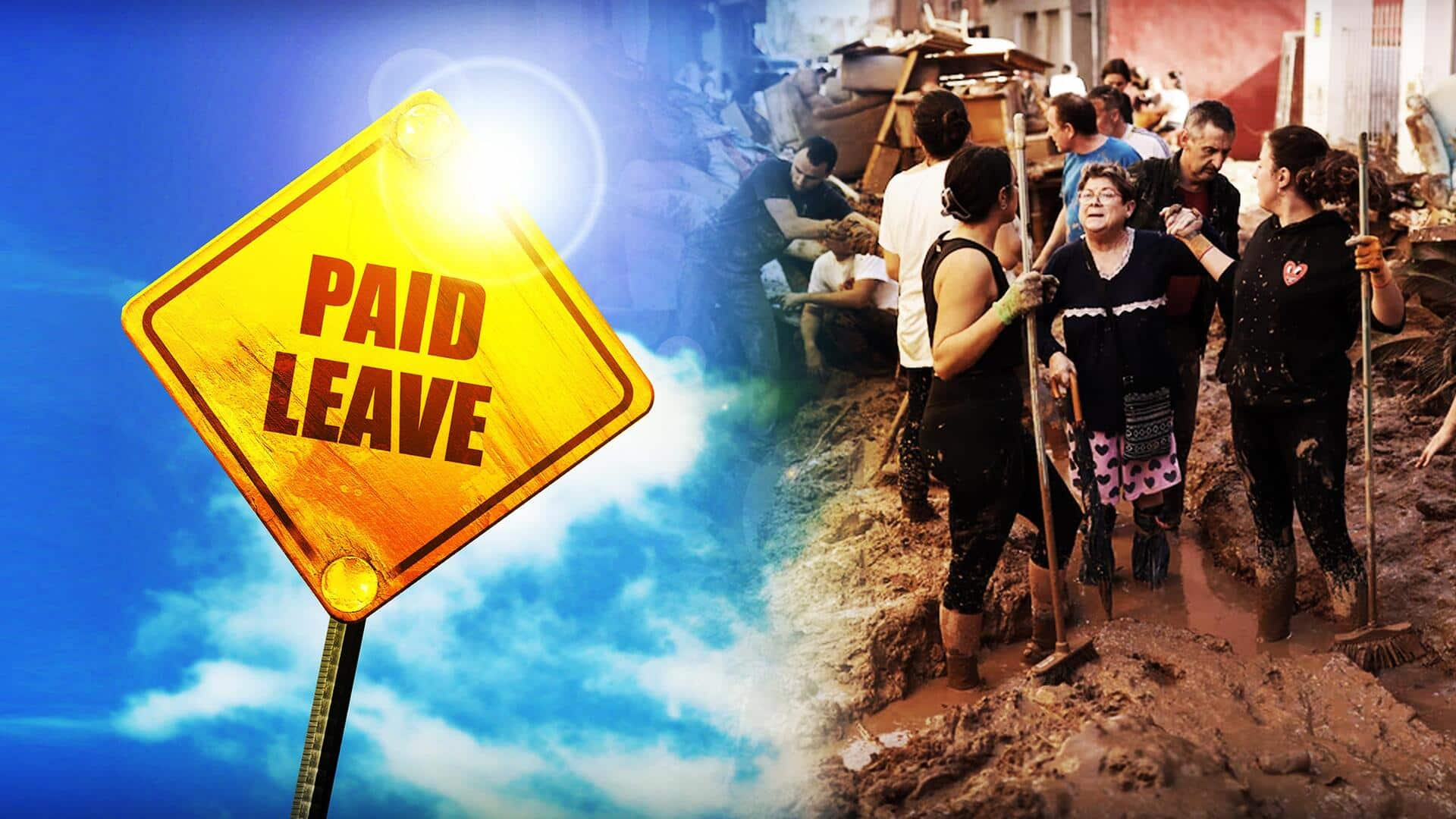
Spain introduces paid climate leave following deadly floods
What's the story
In the wake of the devastating floods on October 29 that killed at least 224 people, Spain's government has announced a "paid climate leave" policy. The new legislation enables workers to take up to four days off during weather emergencies. The decision comes after companies were criticized for forcing employees to work despite a red alert issued by the national weather agency.
Worker safety
Climate leave aims to protect workers during emergencies
Labor Minister Yolanda Diaz explained that the measure is designed to "regulate in accordance with the climate emergency" and ensure "no worker must run risks." If an emergency alert is issued, employees are now advised not to travel to work. Beyond the four-day leave, workers can opt for a reduced working day under a pre-existing emergency provision.
Policy inspiration
Spain's climate leave policy draws from Canadian laws
The new legislation draws inspiration from similar laws in Canada, RTVE reported. Diaz stressed the government's commitment to green policies in the face of "climate denialism from the right," El Pais reported. Economy Minister Carlos Cuerpo warned that extreme weather costs could double by 2050 and announced €2.3 billion in aid for flood victims.
Weather impact
Climate change intensifies extreme rainfall globally
Human-induced climate breakdown is intensifying extreme rainfall around the world, especially in Europe and elsewhere. Warmer air holds more water vapor, resulting in more frequent and severe flooding. Flood defenses, land use, etc., also play a role in these events. In Valencia, where most flood deaths occurred, regional president Carlos Mazon admitted errors but rejected resignation calls citing the disaster's unprecedented scale.
Ongoing crisis
Spain faces more torrential rains after deadly floods
Spain continues to grapple with extreme weather conditions. Torrential rains struck again two weeks after the deadly floods, leading to 3,000 evacuations in Malaga. The new "paid climate leave" policy is expected to provide some respite for workers during such emergencies by allowing them to stay home without risking their income or job security.